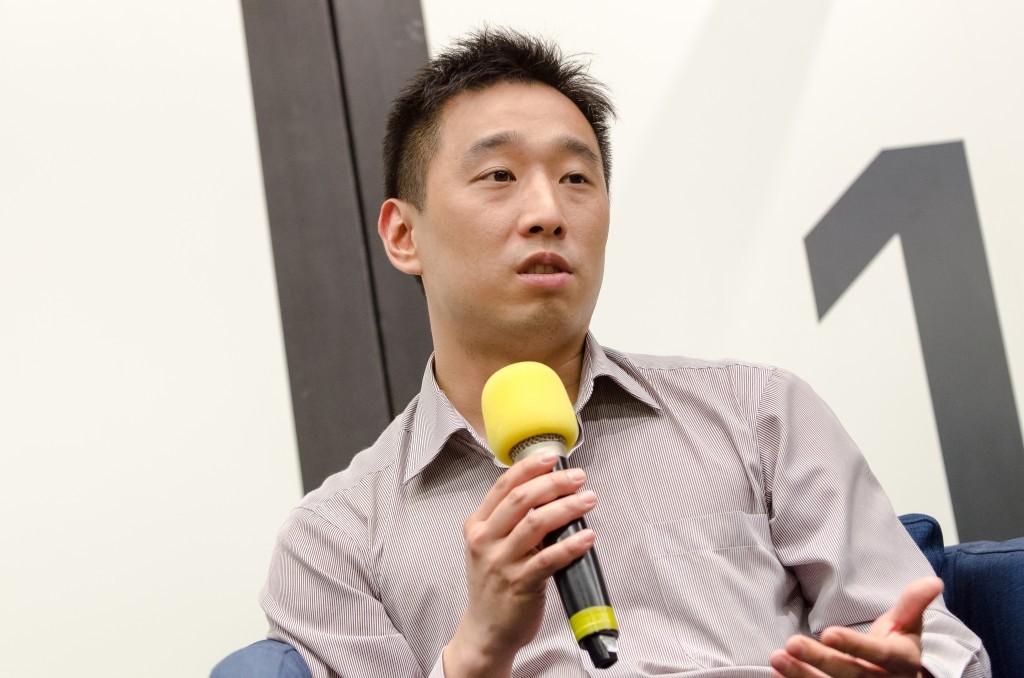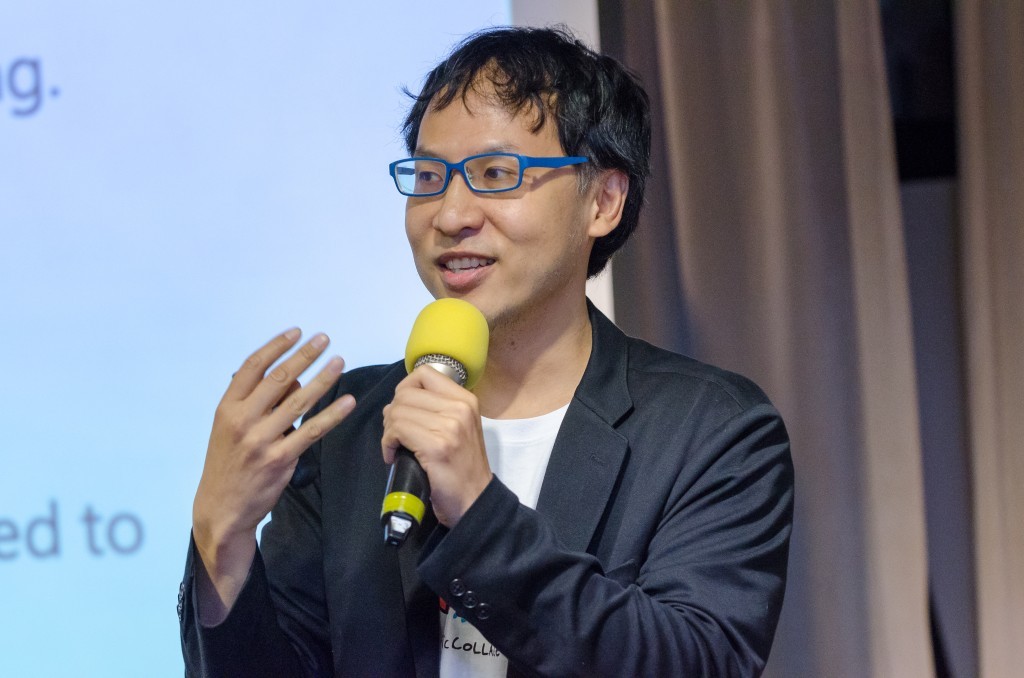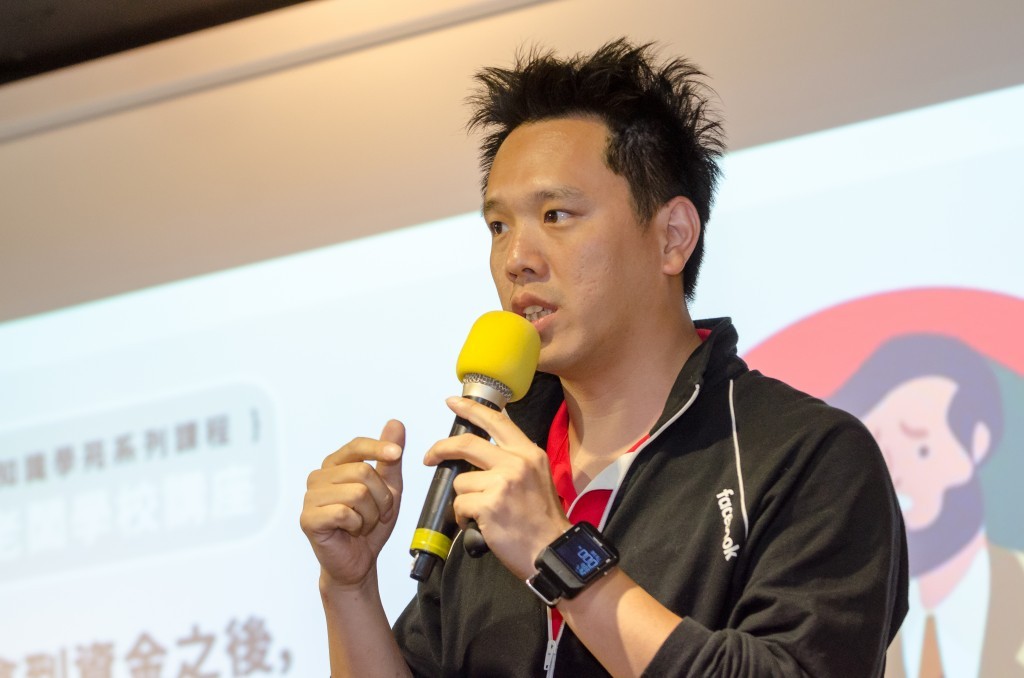Now you get your funding. What’s next? (PART II)
Translated by 半月
After sharing their stories, the co-founders of CardinalBlue, Deepblu and Mesh Ventures investment are ready to take question on “the next steps” after getting the funding.
Q: How do you contact venture capitalists / start-ups?
Brad: I believe that it’s important for start-ups to meet the right person. And for Deepblu, it was TSS (Taiwan Startup Stadium). In many of their projects, they did a lot of analysis and were willing to put in resources. After this, we went for international start-up competitions and events, such as RICE and Tech in Asia. We got to know some other venture capitalists in the process.
John: If you consider your stuff international and can be sold abroad, go try in the Silicon Valley. Another thing is AngelList, kind of like facebook for start-ups where you can write introduction to your group and investors to contact you more easily there.
It is important for start-ups to build a “angel investor portfolio.” The key difference between a good and a bad angel is their emotion management (Everybody laughed). You should go look for feedback from companies that have received their funding after 1 or two years.
Q: How did you deal with the valuation?
John: We asked our neighbor in the accelerator and reported similar amount, which was 3 million at the first time. I don’t think valuation is that important for start-ups. Dropbox didn’t do well on that at first either.
Ben: Usually, I would first like to know what problems this start-up is trying to solve. Every problem is an opportunity, so is this problem big enough? Secondly, I would like to know whether this group is suitable for doing the things they want. We spend time getting to know “people”, like the CTO and CEO of the company.
For some people, I will give them money even after they fail at the tenth time. I want to be part of their future success.
Regarding valuation, especially in seed round, there is really no reference. The only thing that matters is whether there’s investor willing to give the amount you want. By the way, investors who are willing to pay much may not be the best choice. It may be because they don’t understand what you are doing exactly.

Q: What are the next steps after getting the funding?
Brad: We moved to a new office, not for “enjoying the money”. Before we got the funding, our group of 11 people worked in a very small and “cozy” place, we needed a better working environment and to start recruiting. Besides this, we spent most money on recruitment. Deepblu sells high-end products, we need the best employees who are stress resistant and able to design the best products. So, we spent time and money advertising and head-hunting abroad. It depends on companies. To us, employees matter.
John: Like what I just mentioned, the first investor for CardinalBlue was a VC firm from the Silicon Valley who wanted us to expand. So we hired a very expensive BD and spent a lot of money on PR. They even suggested us to buy users. In this process, we discovered that we can do BD, PR ourselves. I think they are great investors. They wanted CardinalBlue to become what they wanted it to be. But we have our own way to go, so do most start-ups.
Q: Are there problems that cannot be solved with money?
Brad: Without money, nothing is possible. With money, not everything is possible. Money is no guarantee for living happily ever after. Money can’t help us on the relationship with the board of directors, or avoid to stop our collaboration with one co-founder because of the plan for the future started to differ.
In addition, employees can be another source of pain. I think people is really the key. Especially early employees influence the culture of the organization. My advice is to look for people slowly and fire people rapidly.
John: You cannot buy the feeling of being poor with money. When you have 2 million dollars in the bank account, it is hard to run as fast as if you are running out of money. Thus, it is very important to remind yourself the feeling when you had nothing.

Q: How should investors interact with start-ups?
Ben: I think it’s better to be themselves. One can never fake long. Of course we like good news. But please don’t forget we need bad news as well, in the first place. If we don’t know what happened, how can we help? Maybe I happened to know a software guy who can solve your problem in 15 minutes through telephone. Investors usually know more people than you do. But you have to let them know your need. Also, please provide us possible solutions when telling us your problem. You should take your time and come up with a plan.
Q: How should we schedule fundraising plans?
Ben: We do have some general principles regarding this WHEN question. According to our experience, there’s a 6-month interval between the day you start fundraising and the day you receive the money. For early start-up, it will be better to use this money to survive the first 2 years.
Brad: There’s a kind of girl in school who always says she doesn’t want a boyfriend because she wants to focus on schoolwork. After a while, she goes out with another guy. I think start-ups can learn from this story when facing VCs. You can act as if you don’t need them. However, this is only feasible when you have some money to survive at the time. If this is the case, you can stay open to any possible investors.

Dream big is not a problem. What you need to do is to find a way to get there!
“Dream big is not a problem. What you need to do is to find a way to get there. A company without a big dream can be dangerous.” Ben said, “Especially for Taiwanese start-ups, they tend to target only this island. If you yourself don’t believe that you can go out of this island, you don’t have a chance. If you can dream, it’s possible!”
中文版連結
Cover photo: PanX











留言討論